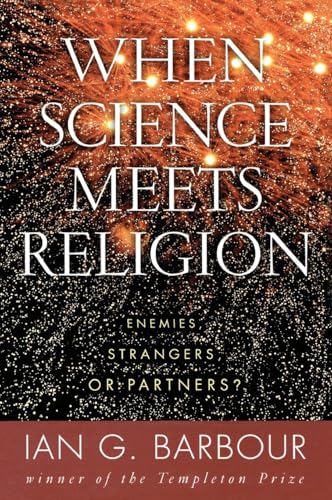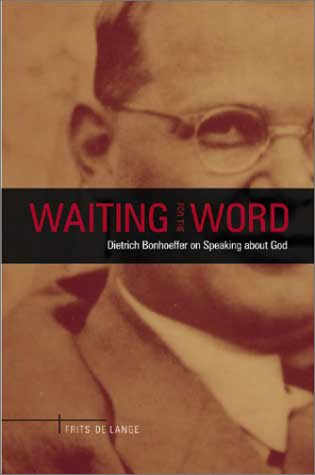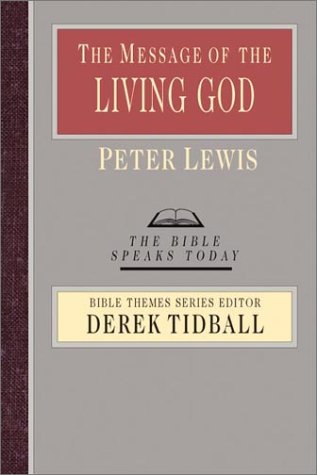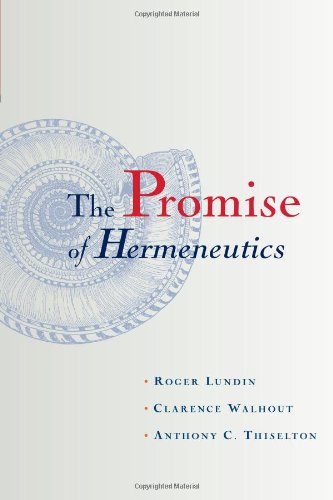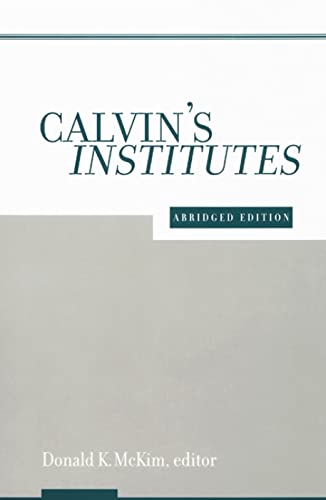Volume 27 - Issue 1
New Testament Literature Survey—2000
By Alistair I. WilsonThe following article was first published in Foundations Issue 45, Autumn 2000 and is published with permission.
Introduction
The year 1999/2000 saw some excellent material published in the field of New Testament studies. I will make some brief comments on a selection of the material in this article. As with all reading, I urge readers to read any and all of the following works critically.
Commentaries
After a pause in the publication schedule, the ‘Pillar’ series of commentaries from IVP has seen three new additions.1 P.T. O’Brien has written on Ephesians, D. Moo on James and C. Kruse on the Johannine epistles. O’Brien’s commentary is notable in several respects. Firstly it completes a trilogy of commentaries by the author on the the ‘prison epistles’. O’Brien’s previous commentaries on Colossians and Philemon (Word Biblical Commentary) and Philippians (New International Greek Testament Commentary) already having been warmly received. Secondly, it provides a contemporary and informed defence of Pauline authorship of Ephesians written by an able scholar who has maintained a consistent commitment to informed conservative exegesis in his scholarship. Moo has already written on James in the Tyndale series. In this new commentary he has been allowed to devote twice the amount of space to his exegesis, which has allowed him to argue clearly for his decisions and to update his engagement with secondary literature so that he now interacts with the important recent commentaries by Johnson and Martin. The commentary is non-technical and includes some brief but helpful comments on application. Kruse’s introduction is notable for his extensive use of the early church fathers to reconstruct the historical context of the letters and to establish Johannine authorship of the letters. All three commentaries provide clear and helpful discussion of the biblical text from a position of confidence in its authority as Scripture.
The IVP Commentary series is further enhanced with a volume on John by R. Whitacre. This series is generally pitched at a somewhat more academic level than the Bible Speaks Today series, but with more practical application than is usually found in the Tyndale commentaries. This particular volume is a substantial exposition of John, acquainted with recent secondary literature, but focussed on the theological message of the document. It will prove useful to preachers, though students will need to augment it with other more detailed commentaries.
Also on John, and essentially an extended introduction to John’s Gospel, is the revised edition of S. Smalley’s, John—Evangelist and Interpreter.2 Smalley has enhanced his already valuable survey from 1978 with a heightened emphasis on the literary qualities of John’s work. This book offers a helpful balance of discussion of the contemporary debates and discussion of the features of John’s text. It will continue to aid interpreters in its new form.
Crossway continues to publish volumes in their ‘Crossway Classic Commentaries’ series. Calvin on 1 and 2 Thessalonians will need no additional commendation to readers of this journal. It is to be hoped that this new edition will introduce new readers to Calvin’s fine exegetical work, but at £9.99 for a slim paperback of 110 pages, it is rather expensive, and so those who do not possess the excellent series of hardback volumes published by Eerdmans may be well advised to look out for secondhand copies. For the same price, you can have twice the number of pages in Jude by Thomas Manton. This commentary is much more appropriate for devotional reading than for exegetical work, but will no doubt serve a valuable purpose in that role.
The ‘Ancient Christian Commentary on Scripture’ series is a valuable new venture intended to bring the voice of the early church fathers into contemporary exegesis of Scripture. My experience of this fledgling series has been with the volume on Mark,3 although several other volumes, including one on the Corinthian letters, have been published more recently. Each verse of the Scriptural document is glossed with selected quotations from a variety of ancient authors. These volumes will not replace the fundamental tools of exegesis, but they offer a rich resource for adding theological depth to exegetical study, and may prove to be an ideal entry point to the writings of the church fathers for those who are as yet unfamiliar with them. However, since many of the citations are brief, there is a real risk of an author’s words being read out of context. The reader will gain most from this series if he or she bears in mind its limitations, and perhaps seeks some engagement with the full text of some of the Fathers. An alternative route into an appreciation of the early church Fathers is offered by a devotional volume. Day By Day With the Early Church Fathers.4While the readings in this volume are even more detached from their context, they may still introduce readers to the theological riches in these writings. A much more intensive engagement with one of the Fathers, Augustine, is offered by my colleague Nick Needham in his recent volume, The Triumph, of Grace.5
The new commentary on Hebrews in Sheffield Academic Press’ ‘Readings’ series has a true claim to distinctiveness.6 Its author is not a Professor of Hebrews but a Professor of Hebrew—the Regius Professor of Hebrew at the University of Cambridge, Robert P. Gordon. Gordon writes concisely and with theological sensitivity. The result is a brief commentary which is non-technical (though there are occasional awkward technical terms) and readable, written by one who appreciates more than most the significance of the OT.
The Interpretation series of commentaries claims to be designed ‘for teaching and preaching’. Richard B. Hays’ addition to this series on First Corinthians7 is worthy of the preacher’s attention. Hays has been steadily building a reputation as a sensitive and constructive interpreter of Scripture, and much of his work on Paul’s use of the OT and on ethics comes together in this very readable commentary. Each exegetical section concludes with ‘Reflections for Teachers and Preachers’. These reflect serious consideration both of Paul’s thought and of the modern world and should stimulate the preacher to think even if he comes to different conclusions from Hays. Particularly good examples of Hays’ robust theological and ethical thinking are found in the ‘Reflections’ on 1 Corinthians 7 (on male-female relationships) and on 1 Corinthians 15 (on the resurrection). I do not commend all of Hays’ views but I warmly commend his commentary as an aid to good biblical interpretation.
The new International Critical Commentary by I. Howard Marshall on The Pastoral Epistles8 has been long-awaited and its appearance is to be welcomed. No doubt the first question in the minds of many will be ‘What does he think about authorship?’ It is true that this is an important subject, and it is true that Marshall takes a position that is somewhat distanced from traditional Pauline authorship (though he seeks to preserve strong continuity with Paul in his argument). However, although many readers may be uncomfortable with Marshall’s conclusions, it would be deeply unjust to dismiss this commentary on this point alone. This is a rich exegetical and theological exposition, which deals with exegetical issues in such a way that the reader can gain a clear understanding of the arguments for and against a given view. The discussion may be too exhaustive for preachers under pressure in any given week, but this commentary will provide a reference tool on difficult issues when other brief books do not satisfy. Eleven excursuses deal in a more focussed manner with significant theological issues in the Pastoral Epistles such as ‘Christology and the concept of “epiphany” ’. Competence in Greek is required in order to gain full benefit from this commentary.
In mentioning one commentary of mammoth proportions, it is worth noting that readers who have appreciated previous volumes in the New International Greek Testament Commentary series will want to look out for the substantial volume on 1 Corinthians by Anthony Thiselton which was published at the beginning of 2001.
Monographs
First of all in this category, I should mention additions to two valuable series published by Baker. The ‘Encountering’ series already includes excellent introductory volumes on both the OT9 and the NT.10 To these has been added a volume on John’s Gospel by A.J. Köstenberger, who has already written or translated several books.11 This book is presented in the form of a textbook, but it is written with clarity in language that conveys both learning and Christian conviction. While the working pastor may not find this volume as immediately accessible as a traditional commentary, careful reading of Köstenberger’s work will provide a literary and theological perspective on the whole gospel that will enrich a teaching ministry.
At a completely different level are the dissertations by evangelical scholars Brian Rosner (Paul, Scripture and Ethics) and David Crump (Jesus the Intercessor).12 Though originally published some years ago in very expensive hardback editions by European publishers, these books have now been republished in affordable paperback editions in Baker’s ‘Biblical Studies Library’ series. While they exhibit all the drawbacks of a technical dissertation (frequent quotations in Hebrew, Greek and German, constant reference to inaccessible scholarly literature) they also exhibit great exegetical strengths, and are well worth the effort for the persevering reader who possesses the necessary linguistic skills. Look out for further important volumes in this promising series, including the recently published Blasphemy and Exaltation in Judaism by D. Bock,13who seeks to provide background information to Jesus’ declaration in Mark 14:62 and the resultant response of the high priest.
John D. Harvey’s book, Listening to the Text, is the first volume in a projected series to be published under the auspices of the Evangelical Theological Society.14 This volume is a published dissertation and is full of Greek. No concessions are made for the reader without Greek. If you don’t read Greek, you will find this book utterly incomprehensible! If on the other hand, you do have Greek Harvey provides a useful, if demanding, discussion of features characteristic of oral rhetoric which he finds in the Pauline letters.
Paul is the focus of the large new volume from Robert L. Reymond, Paul, Missionary Theologian.15 The book is the fruit of many years of teaching, and it treats the letters of Paul and the accounts of Acts both thoroughly and with reverence. The first part of the book deals with Paul’s life and travels, while the second part expounds the key elements of Paul’s ‘mission theology’. Sometimes the original lecture format shows itself clearly, leading to lists with numerous headings and very brief discussions, but overall this book provides a wealth of material in (generally) accessible form. (Greek text is used often, but it is normally translated in the main body of the text.)
Frank Thielman has contributed The Law and the New Testament: The Question of Continuity to Herder’s Companions to the New Testament series. Those who are familiar with Thielman’s previous volume on Paul and the Law will not want to miss this more wide ranging study.
Also tracing a theme through the NT Scriptures is The Promise of the Father by Marianne Meye Thompson.16 Set against the backdrop of contemporary feminist challenges to the use of ‘Father’ as a designation for God, this is a careful study of the biblical material which presents God as Father, either explicitly or by implication. Along the way, Thompson reconsiders Joachim Jeremias’ famous views on Jesus’ use of the Aramaic term abba and helpfully challenges the view that the concept of God taught by Jesus and developed in the NT is fundamentally different from that of the OT.
Serve the Community of the Church, subtitled ‘Christians as Leaders and Ministers’ sounds as if it should be required reading for every serving minister.17 The news that this volume, written by Andrew D. Clarke, comes within a series entitled ‘First-Century Christians in the Graeco-Roman World’, will no doubt crush the sense’ of expectation in some readers, but this would be a very unfortunate response. While the first six chapters do indeed focus primarily on background studies, these studies allow the modern reader to better understand important terms (for example, ekklesia) and patterns of behaviour in secular and religious leadership. The remaining chapters then interpret the Pauline letters in the light of the background studies, indicating the way in which Paul rejected authoritarian leadership in favour of presenting himself as a servant.
In my review of NT literature for 1999, I drew attention to several volumes from the New Studies in Biblical Theology series.18 The latest volume on justification, entitled Christ, Our Righteousness,19 and written by Mark Seifrid of the Southern Baptist Theological Seminary, is bound to be of great interest to leaders in the church. Seifrid works carefully through substantial portions of Paul’s letters, particularly Romans, interacting with important recent scholarship from Germany and from the so-called ‘new perspective’ on Paul.
At the slim end of the monograph scale come two contributions to the Didsbury Lecture Series which includes volumes of published lectures by Professors F.F. Bruce, I.H. Marshall, J.D.G. Dunn and M.D. Hooker among others. Professor Richard Bauckham of the University of St Andrews gave the 1996 lectures, which have been published under the provocative title, God Crucified.20 This brief (79 pp.) book is significant out of all proportion to its size, presenting in condensed form an important argument for understanding early Christology which Bauckham intends to develop in a longer volume. The 1999 Didsbury Lectures were given by Professor Larry Hurtado of the University of Edinburgh. They have been printed as At the Origins of Christian Worship.21 In many ways Hurtado’s book complements that of Bauckham as they both seek to establish the way in which Jesus was acknowledged to be worthy of worship. Both are historical studies though Hurtado’s book concludes with some reflections on worship in the contemporary church.
It is barely conceivable that an annual review of NT literature would fail to include a volume by Ben Witherington III. True to form, Witherington has recently published Jesus the Seer, a study of prophecy from its earliest expressions in the Ancient Near East right through the canonical literature of the Old and New Testaments, Jewish literature such as 1 Enoch and the Dead Sea Scrolls and on to the Montanist movement in early Chrislianity. This is an absorbing study which is written with flair and supreme confidence in handling the diverse materials.
Taking a broad sweep through the history of the primitive church, while maintaining a decidedly theological perspective, Paul Barnett has written an excellent volume entitled Jesus and the Rise of Early Christianity.22 An excellent text for gaining proper perspective on the historical development of the early Christian community.
Volumes of Essays
Volumes of essays are frequently among the most interesting and yet the most disjointed of books, providing the reader with a rich menu of essays which probably relate to each other only very loosely. Among the most interesting are so-called Festschriften or celebratory volumes presented to distinguished scholars at particular milestones in their lives.
One such Festschrift, which does not suffer from the typical disjointed characteristics, is Romans and the People of God,23 presented to Professor Gordon Fee on the occasion of his sixty-fifth birthday. Fee’s name has become synonymous with respectful exegesis of Paul, and his works will bring benefit to the careful reader, even if he or she disagrees with some of Fee’s views. This volume includes exegetical, theological and pastoral essays on Romans, largely, though not exclusively, by evangelical colleagues and former students of Fee. It has a balanced feel and will provide stimulating material to augment the standard commentaries for those who preach and teach from Romans.
As the title suggests, Baptism, the New Testament and the Church attempts to discuss an issue of great pastoral significance with reference to both pastoral ministry and the academic study of the NT. Presented to R.E.O. White, formerly Principal of the Scottish Baptist College in Glasgow, there is not surprisingly a substantial representation of contributors from the ‘credo-baptist’ perspective. However, there is sufficient diversity in this volume to interest readers regardless of their convictions regarding baptism, and there is certainly the potential for richer understanding of the debate. In addition to a biographical sketch of the honouree, there are many interesting articles on biblical material by evangelical scholars such as John Nolland (on baptism in Matthew’s gospel), Stanley Porter (on the translation of Mark 1:4). Joel Green (on baptism in Luke-Acts) and Matthew Brook O’Donnell (who provides a fascinating study of 1 Corinthians 12:13 which develops from a comparison of the views of John Stott and Martyn Lloyd-Jones on ‘baptism in the Spirit’). In addition there are several excellent historical essays such as those by David Wright on ‘Infant Dedication in the Early Church’ and Geoffrey Bromiley on ‘Baptism in the Reformed Confessions and Catechisms’. Though several essays demand competence in Greek and or Hebrew, this volume will prove to be enjoyable and rewarding for pastors who wrestle with the exegetical, theological and pastoral issues relating to this subject.24
A third Festschrift of note has been published in honour of Jack Dean Kingsbury. Who Do You Say That I Am? Essays on Chrislology25 is a collection of 17 essays by scholars such as Ben Witherington III, Paul J. Achtemeier and C.K. Barrett, primarily on the Christology of the NT documents. However, there are also some less predictable titles such as ‘Christology and the Old Testament’ and essays on the significance of NT Christology for Systematic Theology, for Pastoral Ministry and for Preaching. While many of the contributors are not evangelicals, there is a generally constructive approach to the biblical texts and the essays are written with a view to bringing benefit to the church as well as to the academy.
Any teacher, minister or serious student of theology who has not heard of N.T. Wright’s exceptional volume, Jesus and the Victory of God26 has clearly been on a different theological planet. Anyone who has not read and interacted with this book has missed a rich opportunity to learn, even if in disagreement. Such is the significance of this book that a volume of essays has been produced with the sole purpose of interacting with Wright’s book. (Try to think of the last time that happened.) Thus Jesus and the Restoration of Israel27 draws together a group of distinguished scholars who evaluate Wright’s work from a variety of angles and from varying degrees of sympathy. This book will be of limited value to those who have not read Wright first and indeed It would probably be unfair to Wright to hear the criticisms of his work before letting him speak for himself. However, for those who have read his book, this volume provides an opportunity to reflect on some of the important issues that are raised by Wright such as the significance of Jesus’ death, the interpretation of ‘apocalyptic’ language in the gospels and Jesus’ predictions about the future.
The high standard of the McMaster New Testament Studies series is continued by The Challenge of Jesus’ Parables.28 Containing clearly written essays on both the form and content of Jesus’ parables, this book will provide stimulating material for teachers and preachers, as well as those who have not had formal theological training.
The New Testament Today29 is a collection of short essays aimed at students or busy pastors who want to be aware of the current trends in NT scholarship. This is both its strength and its drawback. It certainly provides a representative selection of essays on all the NT literature written by scholars who are recognised as experts in their respective fields (such as James Dunn on Paul and Donald Hagner on Matthew). Some of the essays also have good bibliographical information. However, there is a tendency to give attention to trends in scholarship rather than to the biblical documents themselves, so that the title is somewhat misleading. While some of the authors are evangelicals or sympathetic to evangelical scholarship, others are not. This book will probably be of most use to the theological student who requires an orientation to the diverse world of contemporary NT scholarship.
Between Two Horizons30 is boldly subtitled ‘Spanning New Testament Studies and Systematic Theology’. Those who consider themselves advocates of the latter discipline may be somewhat sceptical of the success of the endeavour in the light of the fact that eight of the nine contributors are professional biblical scholars. In fact, the theme of the volume is really hermeneuties, which of course remains a crucial issue for those who are charged with teaching the people of God. This book serves as an introduction to the forthcoming ‘Two Horizons Commentary’ series which has the potential to encourage fruitful interaction between NT studies and Systematic Theology. Whether it is able to realise that potential remains to be seen when the first volumes come off the press.
Miscellaneous
There is really no way suitably to class Will the Real Jesus Please Stand Up?,31 which is accurately subtitled as ‘A debate between William Lane Craig and John Dominic Crossan’. This book is essentially a transcript of a debate between the evangelical scholar and apologist William Lane Craig and the most celebrated representative of the American ‘Jesus Seminar’, John Dominic Crossan. Craig is a remarkable combination of brilliant academic and gifted apologist. It is the latter gift that comes through most clearly in this volume. Crossan is also widely regarded as a gifted communicator and so the scene is set for an illuminating exchange. At times readers will feel that the ‘performance’ setting leads to a measure of overstatement in views, and the chairman of the debate is rather intrusive. Readers will also, almost certainly, think of arguments that they would have presented had they been in the debate. However this book provides a useful and accessible insight into the fundamental points of contention between orthodox scholarship and ‘the Jesus Seminar’ as expressed by representatives of each position.
The Historical Jesus Quest32 is a reader which includes short excerpts from some of the major figures in the history of study of Jesus including Reimarus, Strauss, Schweitzer and Bultmann. Though that group of names may sound rather forbidding, it is nonetheless useful to have access to a good range of sources which might otherwise be inaccessible so as to gain first-hand acquaintance with the views of these significant figures. This book will probably find its most ready market among students, though all who see the value of apologetics may wish to become familiar with such influential views.
A useful resource for students or others who want to re-visit their studies of the distinctive voices of the four gospels is Portraits of Jesus: An Inductive Approach to the Gospels by M.R. Cosby.33 As the sub-title suggests, this volume is intended to provide a ‘guided reading’ resource to accompany reading of the gospels themselves rather than be a textbook about the gospels. As such it is admirable in its aim. Cosby provides comments which set each passage of each gospel in both literary and historical context, includes relevant selections of background materials, and then sets questions for reflection on the part of the student. The resultant text does not read like a typical textbook; it is much more like a workbook or exercise book. It will not be enjoyable to read unless the gospel passages are read thoroughly at the required points. Also, some readers may be put off by Cosby’s apparent confidence in commenting on the synoptic relationships. However this book has the potential to help careful readers find the riches of the gospels for themselves and so may be warmly welcomed.
Conclusion
Not all readers will find each of the above books relevant to their own interests or needs. The wise reader will think carefully about what he or she needs to read and use available time for the greatest benefit and will beware of allowing secondary reading to replace continual fresh exposure to the ‘God-breathed’ Scriptures, which must remain a priority at all times. However, careful, thoughtful and prayerful use of some of the above volumes may help readers to be better informed as they interpret the NT Scriptures for themselves, for teaching the people of God or for defending the faith in the modern world.
1 Published by Eerdmans in the USA and IVP in the UK.
2 Carlisle: Paternoster, 1998
3 Edited by T.C. Oden and C.A. Hall, Downers Grove: IVP-USA, 1998.
4 Peabody: Hendrickson, 2000
5 Grace Publications, 2000
6 Sheffield: Sheffield Academic Press, 1999
7 Louisville: Westminster John Knox Press, 1997
8 Edinburgh: T. & T. Clark, 1999
9 Encountering the Old Testament, B. Beyer, Grand Rapids: Baker, 1999
10 Encountering the New Testament, Elwell and Yarbrough, Grand Rapids: Baker, 1998
11 Notably, he is responsible for the translation of Adolf Schlatter’s two-volume New Testament Theology.
12 Grand Rapids: Baker, 1994 and 1992, respectively
13 Grand Rapids: Baker, 2000
14 Leicester: Apollos, 1998. The series is published by Baker in the USA.
15 Fearn: Mentor, 2000
16 Louisville: Westminster John Knox Press, 2000
17 Grand Rapids: Eerdmans, 2000
18 Published by Eerdmans in the USA and IVP in the UK.
19 Leicester: Apollos, 2000
20 Carlisle: Paternoster, 1998. Readers who are aware of Bauckham’s expertise in the writings of Jürgen Moltmann will not be overly surprised at his choice of title.
21 Carlisle: Paternoster, 1999
22 Downers Grove; IVP-USA, 1999
23 S. Soderlund and N.T. Wright (eds) Grand Rapids: Eerdmans, 1999
24 The price tag of £50.00 may well put off many potential readers, but Sheffield Academic Press has a policy of making hardback volumes available to individual readers at 50% discount where there is no paperback edition. The price of £25.00, though not cheap, is not unreasonable for a finely produced book.
25 Louisville: Westminster John Knox Press, 1999
26 London: SPCK, 1996
27 C.C. Newman (ed.), Downers Grove: IVP-USA, 1999
28 R.N. Longenecker (ed.), Grand Rapids: Eerdmans, 2000
29 M.A. Powell (ed.), Louisville: Westminster John Knox Press, 1999
30 Grand Rapids: Eerdmans, 2000
31 Grand Rapids: Baker, 1999
32 G.W. Dawes (ed.), Louisville: Westminster John Knox Press, 1999
33 Louisville: Westminster John Knox Press, 1999
Alistair I. Wilson
Alistair I. Wilson
Highland Theological College UHI
Dingwall, Scotland, UK


